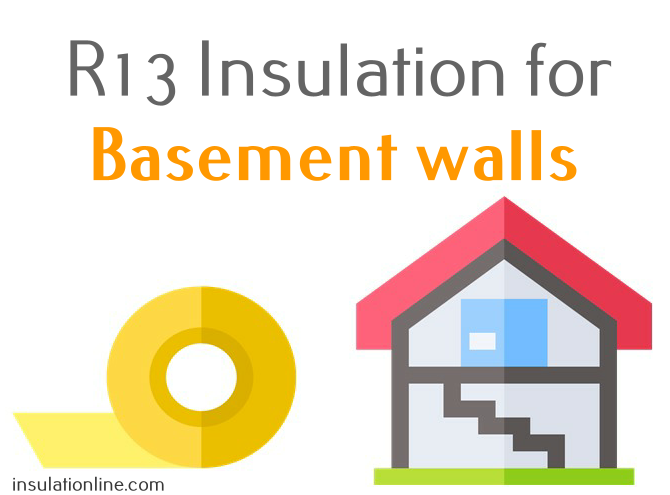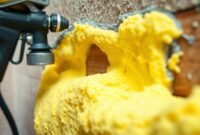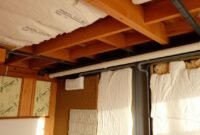Picking the correct R13 insulation for basement walls can improve thermal resilience in dwellings. You are probably asking about R13 insulation at this time. Well, what exactly is it, then? Should you insulate a basement wall? Then, is R13 insulation good for basement walls?
R13 insulation is a 3-4/8 inch solid fiberglass batt with noise-reducing characteristics. Its heat-resistant compound, which is often put in 2×4 internal walls, also does a fantastic job of addressing humidity difficulties.
Read also: Basement Wall Insulation Blanket
Should I Insulate the Basement Walls?
R13 insulation for basement walls is essential and crucial for several reasons, including energy savings and adherence to specific building code requirements. Homeowners should prioritize having a well-insulated basement, especially when dealing with an unfinished basement, to ensure efficient energy use and compliance with local regulations.

Once basement walls get insulation, the home benefits in several ways: energy conservation, cost savings, and year-round convenience.
- Energy Conservation
Though many say that setting insulation to the basement’s ceiling or floor is optimal, this is not the most efficient basement insulation option for the room.
Your basement has far more connections to your living rooms than you can imagine. With both you and your basement floors, most of the air surrounding you daily gradually rises toward the main level from the gap.
That air carries the heat from the bottom with it. Because this region of the property is at least to some extent, if not totally, underground, it is usually substantially colder in the basement than in the main living rooms.
- Money-Saving
Your energy expenses can be low for the same reason: energy consumption will be reduced. Because basement insulation covers the foundation walls, your HVAC system may:
- Require less maintenance
- Reduce your monthly to yearly expenses over time.
- Last longer because of its efficient performance
- Increased Comfort
The coziness of the home can increase when the core walls are appropriately insulated, and the HVAC installations operate more effectively.
Whenever a house is adequately insulated, you will not have to worry about wearing extra clothing in the cold or experiencing sudden temperature dips. You may live comfortably in your home without worrying about raising the temperature or incurring hefty energy costs later on.
- Code Requirements for Basement Completion Projects
When considering a basement completion project, numerous elements must be regarded for the safety and health of any possible room occupants.
Whether a basement gets waterproofed or not, insulating your basement walls, particularly the wall cavity, is often the first step in completing it. According to the Department of Energy, insulation products like R13 are recommended for certain climatic zones, making them crucial for basement completion projects.
Experts in basement completion are adept at such services, ensuring that your space meets comfort and regulatory standards.
Is R13 Insulation Good for Basement Walls?
Basement insulation is often 3-5/8-inch solid fiberglass batts. It may not be able to protect dwellings from excessive cold. Because R-values in insulation are cumulative, installing different levels of R13 insulation can give outstanding benefits.
Many manufacturers can provide R13 basement insulation ratings, which can bounce 99.987 percent of the heat and result in ideal basement insulation. Most claims usually relate to its ability to produce durable and reliable wall products.
Even more, manufacturers claim their product has a 50-year guarantee against mold and dampness, even though the basement leaks.
Choosing the Right R13 Insulation: Climatic Considerations and Wall Cavity Fit
When selecting insulation for basement walls, it’s important to consider the specific needs of your space. For instance, in unfinished basements, the focus should be on insulation products that fit snugly into the wall cavity, providing effective thermal resistance.
Additionally, understanding the climatic zones outlined by the Department of Energy can guide you in choosing the right insulation type, ensuring that your basement remains comfortable and energy-efficient year-round.
Conclusion
In conclusion, choosing R13 insulation for basement walls involves considering factors such as the type of basement (finished or unfinished), the specifics of wall cavity, and compliance with building codes and climatic zone recommendations.
By selecting the appropriate insulation products, homeowners can significantly enhance their basements’ comfort and energy efficiency.
So, you’d better have some selection of certain ranges of brands. Then, you can contact the professional for the setup. Please do not try it as a DIY project to prevent failure.


